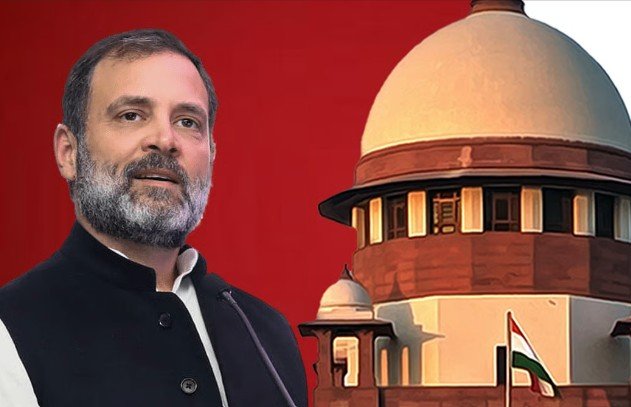SC Extends Stay on Trial Court Proceedings Against Rahul Gandhi Over Army Remarks
Supreme Court defers hearing to December 4 in plea challenging trial court summons
NEW DELHI, Nov 20: The Supreme Court on Thursday extended till December 4 its interim order staying proceedings against Congress leader Rahul Gandhi in a case linked to his alleged derogatory remarks against the Indian Army during the 2022 Bharat Jodo Yatra.
A bench of Justices M.M. Sundresh and Satish Chandra Sharma adjourned the hearing after noting that a request for deferment had been circulated. The bench was examining Gandhi’s plea challenging the May 29 order of the Allahabad High Court, which had refused to quash the trial court’s summoning order.
On August 4, the apex court had stayed further proceedings before the Lucknow trial court. During the earlier hearing, the bench had questioned Gandhi on the basis of his statements regarding the alleged occupation of Indian territory by China, asking, “Were you there? Do you have any credible material?” It further remarked, “If you are a true Indian, you won’t say such a thing.”
The Supreme Court had also issued notices to the Uttar Pradesh government and the complainant, seeking their responses.
Senior advocate Abhishek Singhvi, representing Gandhi, argued that as Leader of Opposition, Gandhi must be able to raise critical issues. He cited Section 223 of the Bharatiya Nagarik Suraksha Sanhita, claiming that the accused must be heard before cognizance is taken something that did not happen in this case.
The complaint, filed by Udai Shanker Srivastava in Lucknow, alleges that Gandhi made derogatory remarks against the Army in the context of clashes with Chinese forces during his 2022 yatra. The trial court subsequently summoned him for trial under defamation charges.
Gandhi’s counsel Pranshu Agarwal contended that the accusations appeared fabricated on the face of the complaint. He also argued that since Gandhi is not a resident of Lucknow, the trial court should have verified the allegations before issuing summons.




